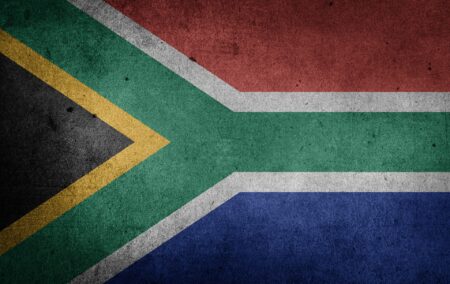The stage has been set for much social upheaval across KwaZulu-Natal. Solutions must go beyond merely targeting corruption and incompetence.
Now would be an apt time to compare how major challenges both differ and overlap across our three most populated provinces. Spoiler alert, such comparing illuminates why this country is not on a sustainable path.
Sharply reducing corruption and incompetence across national government and Gauteng’s provincial government might achieve borderline acceptable results for the province, but the national economy is more deeply imperilled.
The economies of Gauteng and the Western Cape are inherently more economically robust as they are home to a majority of South Africa’s most productive and highest income earners. KZN’s capacity to make similar claims has been slipping precipitously and the province’s tenuous political calm was again jolted on 29 May.
The reasons South Africa is not on a sustainable path are dramatically depicted in KZN. Identity politics is mixed with tribal structures and much populism. Widespread patronage counters would-be democratic paths to balance and align interests. This has deeply entrenched an obscene level of youth unemployment
“Big man” politics
Tribalism and feudalism are similar pre-industrial political structures that were common among agriculture-based economies. Both limit development. KZN further shows how “big man” politics can counter the benefits of both constitutional structures and the integration of affluent and lower-income groups.
Our growth impediments are severe. ANC policies are hostile to businesses and employment. Half of our twentysomethings are on track to become permanently marginalised. This can’t be fixed when they are thirtysomethings. Our productivity trajectory will suffer for decades.
This country’s purchasing power is woefully insufficient to achieve anything resembling full employment. But this is less true in Gauteng and the Western Cape.
Credit losses
Far too many South Africa households have borrowed excessively at high or exorbitant interest rates. The credit losses on such loans are subsidised by the borrowers who pay in-full. The profits accrue to banks headquartered in Johannesburg or Stellenbosch.
Our national government’s borrowing costs are also very high. South African sovereign bonds with maturities of ten years and longer trade at yields double the higher end of inflation expectations, which is about five or six percent. South African investors and banks hold much of this debt but so do foreign investors. Payments made to foreigners reduce our economy’s buying power.
If the inflation-adjusted cost of the borrowings was near zero, as it was for many countries and top-rated companies pre-Covid, having high debt-to-GDP would not necessarily be growth restrictive. But our government, and many households, routinely borrow at prohibitively high rates. Responding to economic stagnation by borrowing at excessively high rates further deters growth.
It is unsustainable for our national government to borrow at elevated rates to fund sub-subsistence payments for, among others, the many millions of unemployed young adults who have been economically marginalised by ANC policies. It all traces back to identity politics being able to exploit inequality to justify pervasive patronage, which is mostly legal, but overall is fully unsustainable.
Little fondness
Jacob Zuma’s MK party expresses little fondness for our Constitution. Rather, the party reaped electoral benefits by supporting traditional leadership generally and, more specifically, the Zulu monarchy. Whether it is MK representatives using traditional leadership as wrapping paper or ANC leaders lambasting inequality, both groups aim to benefit from entrenching massive patronage.
Of course, this fuels corruption and pervasive cadre deployment. Yet the core problem is that the functional capacity of our constitutional democracy has been consumed by patronage. It doesn’t balance competing interests to maximise the common good. Income inequality hasn’t been reduced, yet South Africa’s growth and job creation prospects have been devastated.
A new national government will soon be formed. Among the various reasons to be hopeful is the effect of harsh doses of realism being injected into our political disputes by the prospective risk of KZN chaos.
[Image: Chickenonline from Pixabay]
The views of the writer are not necessarily the views of the Daily Friend or the IRR.
If you like what you have just read, support the Daily Friend

